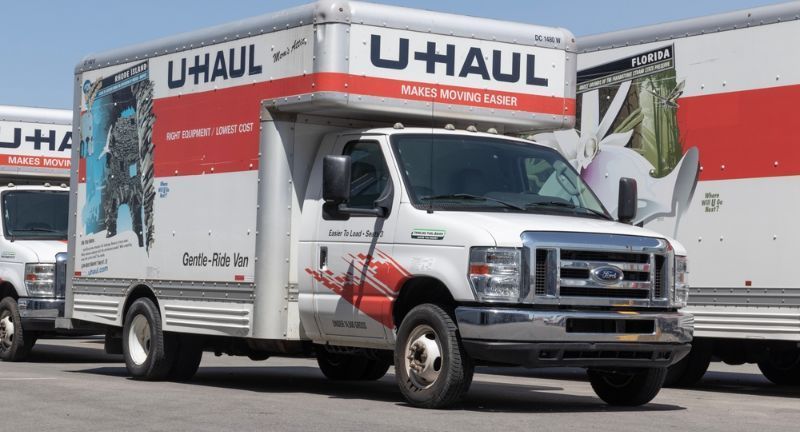NEWS
22 Important Costs Retirees Fail To Plan For
Published
1 month agoon
Retirement planning goes beyond saving for basic living expenses. Many retirees focus on their monthly budgets but overlook essential costs that can disrupt their financial stability. Failing to prepare for these hidden expenses can quickly drain retirement funds and cause unnecessary stress. Here are 22 important costs retirees often forget to plan for.
Long-Term Care Costs

Shutterstock
Long-term care, such as assisted living or nursing homes, can be extremely costly. Many retirees assume Medicare covers these expenses, but it often doesn’t. Planning for long-term care insurance or creating a dedicated savings fund can prevent financial strain later. Ignoring this cost can leave families struggling to cover unexpected care needs.
Out-of-Pocket Medical Expenses

Shutterstock
Even with Medicare, retirees often face significant out-of-pocket medical expenses. These can include copays, prescriptions, and non-covered treatments. Planning for a health savings account (HSA) or supplemental insurance helps cover these costs. Unprepared retirees risk draining their savings on medical bills alone.
Home Repairs and Maintenance

Shutterstock
Aging homes often require costly repairs, such as roof replacements or plumbing issues. Retirees who overlook home maintenance costs may find themselves facing large, unexpected bills. Setting aside a home repair fund ensures these issues don’t disrupt retirement income. Proper planning keeps homes safe and functional during retirement.
Property Taxes

Shutterstock
Property taxes can increase over time, even for retirees with fully paid-off homes. Many fail to account for these rising costs in their retirement budgets. Planning for property tax increases prevents financial surprises down the line. Staying informed about local tax policies is essential for long-term budgeting.
Inflation Impact on Savings

Shutterstock
Inflation can gradually erode the purchasing power of retirement savings. Retirees often underestimate how rising prices for essentials like groceries and utilities affect their budgets. Investing in inflation-protected securities can help safeguard against this risk. Planning for inflation ensures a stable financial future.
Dental Care Costs

Shutterstock
Dental care is often excluded from standard Medicare coverage, leading to high out-of-pocket costs. Procedures like crowns, implants, and dentures can be expensive for retirees. Dental insurance or a dedicated health fund can ease this burden. Neglecting dental care planning can lead to significant expenses.
Vision and Hearing Aids

Shutterstock
Vision and hearing health tend to decline with age, requiring costly aids and treatments. Standard Medicare plans often don’t cover these expenses. Retirees should consider supplemental plans or personal savings for these essential health aids. Proper planning ensures quality of life isn’t compromised by cost barriers.
Legal and Estate Planning Fees

Shutterstock
Creating a comprehensive estate plan often requires professional legal assistance. Wills, trusts, and power of attorney documents come with service fees that retirees frequently overlook. Proper planning ensures assets are protected and distributed as intended. Avoiding these costs can lead to costly legal disputes later.
Funeral and Burial Expenses

Shutterstock
End-of-life costs, including funerals and burials, can be financially overwhelming for loved ones. Many retirees fail to pre-plan or set aside funds for these expenses. Purchasing burial insurance or pre-planning services can alleviate this burden. Proper preparation prevents unnecessary stress for grieving families.
Travel and Leisure Costs

Shutterstock
Many retirees look forward to traveling during their retirement years. However, vacation costs, airfare, hotels, and dining out can quickly add up. Without budgeting for leisure expenses, retirees may find themselves cutting trips short. Planning a dedicated travel fund ensures enjoyable experiences without financial strain.
Gifts and Charitable Contributions

Shutterstock
Retirees often enjoy gifting to family and making charitable donations. However, frequent giving can impact long-term financial health. Planning a budget for gifts and donations helps ensure generosity without risking essential savings. Being mindful of these expenses can make giving more sustainable.
Increased Utility Costs

Shutterstock
As retirees spend more time at home, utility bills for electricity, water, and heating often increase. Seasonal changes can also drive up costs unexpectedly. Planning for higher utility bills ensures a stable budget throughout retirement. Energy-saving upgrades can also help reduce long-term costs.
Pet Care Expenses

Shutterstock
For retirees with pets, expenses like food, grooming, and veterinary care can add up. Unexpected health issues for pets can lead to costly treatments. Budgeting for routine and emergency pet care ensures pets stay healthy without financial strain. Pet insurance can also be a valuable investment for coverage.
Income Tax on Retirement Accounts

Shutterstock
Many retirees forget that withdrawals from traditional retirement accounts like 401(k)s and IRAs are taxable. Failing to account for income tax can reduce available funds. Proper tax planning and consulting with a financial advisor can help minimize tax burdens. Strategic withdrawals can preserve more retirement savings.
Health Insurance Premiums

Shutterstock
Even with Medicare, retirees often face additional health insurance premiums. Medigap plans, Part D coverage, and supplemental policies can add up. Planning for these recurring premiums helps avoid gaps in medical coverage. Exploring cost-effective plans can keep insurance affordable and comprehensive.
Hobby and Club Memberships

Shutterstock
Retirement often opens the door for hobbies like golfing, gardening, or crafting. However, memberships, equipment, and classes can become costly over time. Budgeting for recreational activities ensures they remain enjoyable and stress-free. Planning ahead helps balance leisure with financial security.
Assistance for Aging in Place

Shutterstock
Many retirees wish to stay in their homes as they age, but modifications like ramps, grab bars, and stairlifts can be expensive. Home health aides or cleaning services may also be necessary. Budgeting for aging-in-place assistance ensures a safer and more comfortable living environment. Planning for these costs provides greater independence.
Unexpected Family Support

Shutterstock
Many retirees find themselves financially supporting adult children or grandchildren. While it often comes from a place of love, it can strain retirement savings. Establishing boundaries and planning a family support budget can prevent financial stress. Clear communication about financial expectations can help manage these situations.
Medicare Part B and D Premiums

Shutterstock
Medicare Part B and D premiums can be a significant monthly expense for retirees. These plans cover essential medical services and prescription drugs but often have additional out-of-pocket costs. Planning for these premiums ensures comprehensive healthcare coverage. Comparing available plans can help retirees find the most cost-effective options.
Identity Theft Protection and Legal Services

Shutterstock
Identity theft risks increase with age, often targeting retirees due to financial stability. Legal fees for resolving fraud cases can be costly and stressful. Investing in identity theft protection services and keeping legal resources accessible can prevent major financial losses. Staying proactive with personal security measures is crucial.
Homeowners Association (HOA) Fees

Shutterstock
For retirees living in condos or communities with HOAs, fees can increase over time. These monthly costs cover maintenance, amenities, and community services but can strain fixed incomes. Understanding HOA policies and planning for fee hikes ensures financial stability. Exploring alternative housing options can help manage these costs.
Unexpected Relocation Costs

Shutterstock
Relocating during retirement, whether downsizing or moving closer to family, can come with hidden expenses. Moving fees, real estate commissions, and new furnishing costs often catch retirees off guard. Planning for relocation expenses in advance can prevent financial strain during major life changes. Considering all aspects of a move ensures better financial preparedness.
Conclusion

Shutterstock
Retirement planning requires more than just covering everyday expenses. Overlooking these hidden costs can create financial challenges during what should be a stress-free chapter of life. By preparing for long-term care, medical bills, inflation, and property costs, retirees can better protect their savings. Proactive planning ensures peace of mind and financial security throughout retirement.
More From Local News X
-


20 Critical Mistakes That Shorten Your Laptop’s Life
-


20 Things Millionaires Claim Are The Keys To A Great…
-


Watch left side of screen. Kaboom vault blew on slauson…
-


The 20 Rudest Things You Can Do In Someone Else’s…
-


The 20 Unhealthiest Foods In The US To Avoid At…
-


25 Shocking Discoveries Made In The Last 25 Years
-


22 Old Social Norms Which Are Now Ridiculous
-


20 Baby Boomer Values That Have Been Rejected Today
-


MORE: Fire Erupts Near Griffith Observatory in Los Angeles, CA
-


22 Essential Kitchen Hacks That Fly Under The Radar
-


20 Surprising Questions That Separate The Rich From The Poor
-


21 Ways to Tell Someone Is Much Smarter Than They…
